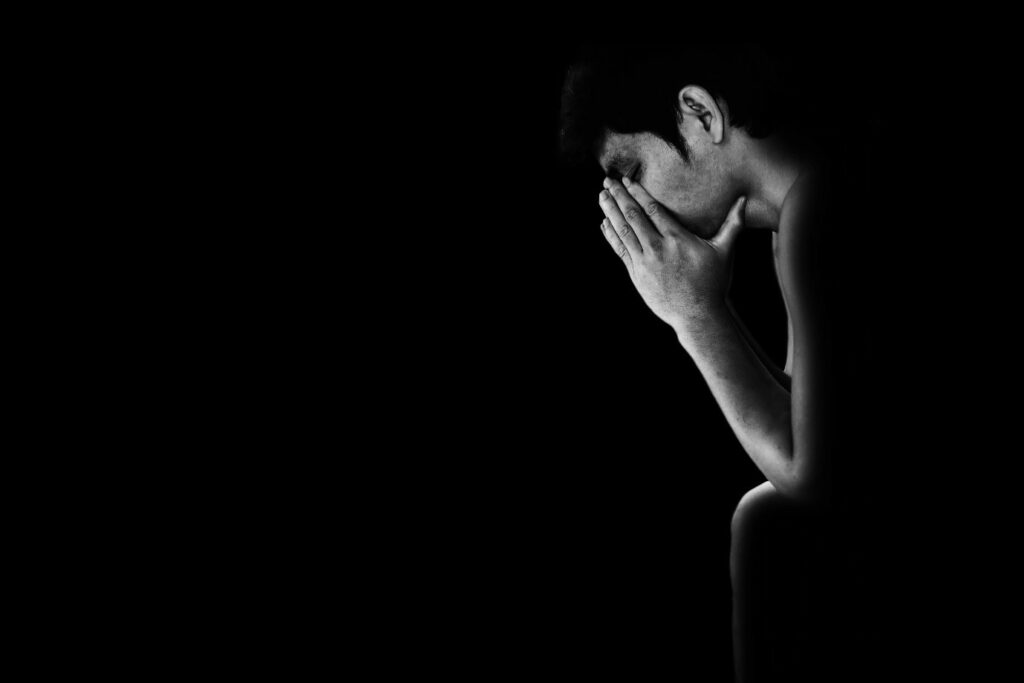With so many depression treatments available, it is difficult to know what is best. Self-help, therapy, medication? Which should you choose? It can certainly be confusing with so many treatment options available.
When you have tried self-hep methods and made good lifestyle changes and your depression is not improving, it is time to get professional help.
Know that you are not alone. According to the World Health Organization, 5% of adults across the world have to deal with depression. It is the leading cause of mental health issues.
Do not believe there is nothing you can do even though it can feel that way. Depression is treatable but you may find it hard to take the first step to reach out. You can feel better.
There are a range of depression treatment options, services and professionals who can help you. The sooner you seek support, the sooner you feel better.
Five types of depression
Depression manifests in different ways. The symptoms you experience can range from minor but still crippling to severe. Five types of depression include:
- Major Depression
- Bipolar Disorder
- Postnatal Depression
- Seasonal Affective Disorder
Major Depression
Feeling constantly hopeless and a sense of despair can be a sign of major depression (also known as clinical depression). This can cause you to find it difficult to eat, work, sleep, study and enjoy socialising and other activities.
Major depression can occur only once in your lifetime or it can reoccur several times. It can also be genetic passing from one generation to the next. But it can also affect people with no history of it in the past.
Bipolar Disorder
Bipolar disorder is also known as manic depression. Typical symptoms include mood swings from extreme depression to manic energy. It is extremely serious and often a lifetime condition. Treatment is usually in the form of medication.
Sometimes it can be difficult to diagnose and can take several visits to your doctor or a psychiatrist.
Manic episodes can be over the top behaviour such as acting in an extreme manner or obsessing over one thing or one part of your life.
Postnatal Depression
Postnatal depression occurs after giving birth. It is a common condition that has the same symptoms as depression. The cause is usually hormonal and chemical the changes pregnancy causes. If it is severe you can find it difficult to care for your child. It is vital to seek support. Talk to friends and family about how you feel, and seek professional help if you continue feeling down.
Seasonal Affective Disorder
Seasonal affective disorder usually only occurs during winter. The symptoms are the same as depression but the low levels of daylight can trigger it as autumn begins. It should disappear during spring as the days get longer. Self-care is usually the best treatment. But seek professional support if it becomes serious.
Dysthymia
Dysthymia is also referred to as persistent depressive disorder. Low moods that last for two or more years are typical. This form of depression can be hard to diagnose. Usually it is the people close to you that notice you may have a problem. For example, you may be constantly irritable and withdrawn and those you care about may express their worry for you. Take their worry seriously and seek professional help because dysthymia is treatable.
Make lifestyle changes
One of the best forms of treatment for depression is making lifestyle changes. Often this is all you need. But even if you need other forms of depression treatment, lifestyle changes can help you recover quicker.
Here are five tips for making powerful changes to your lifestyle.
Eat well
Eating healthy foods is important for both your physical and mental health. Regular small healthy meals throughout the day will keep you energised and minimise mood swings.
All too often you may binge on junk food for a quick energy hit but you will end up crashing soon after. Instead opt for foods with complex carbohydrates such as whole grains, sweet potatoes and berries.
Get enough sleep
Sleep is vital for your depression treatment as it affects your moods. Not getting enough sleep can make your depression worse. Sleep deprivation intensifies fatigue, moodiness, irritability and feelings of sadness. Try to get between 6 to 8 hours of sleep each night.
Reduce your stress
Remove the things that cause you stress. When overly stressed, it increases depression or puts you at risk of depression affecting you later in life. Cut unsupportive people and working to much from your life. Find ways to minimise the impact of daily stress.
Strong social support
Tap into your support network to reduce isolation and the risk of developing depression. Make the effort to stay in contact with family and friends, join interest groups or a class to expand your network. Even consider volunteering. It is a great way to receive support while supporting others.
Regular exercise
Making the effort to regularly exercise is a great depression treatment. While it boosts the feel-good chemicals in your brain, it also helps the brain grow new cells. It helps your brain make connections in the same way antidepressants do. All it takes is between 30 and 60 minutes of cardio activity (walking, swimming, cycling, gym workouts) most days.
Check for underlying causes
If you have made lifestyle changes and still feel depressed, head to your doctor for a check-up. This will tell you if your depression is the result of an underlying medical condition. If it is, you need to treat the condition for depression to lift.
There are a number of conditions and medications that manifest as symptoms of depression—sadness, loss of pleasure, fatigue. An underactive thyroid or hyperthyroidism often causes moodiness, particularly in women. And anyone taking an array of different medications means that interactions could cause depression symptoms.
Best depression treatment for you
Depression can make you feel as if your life is completely hopeless. What you need to understand is it is entirely treatable. And of course it affects everyone in different ways so finding the best depression treatment may mean trying different options.
Learn about all the depression treatment options available. This will help you find the one that best suits you. This will help you feel happy and hopeful again.
The following tips will help you find what treatment for depression is best:
- Understand your depression. To discover the best depression treatment you need to understand it. Once you know you do not have an underlying medical condition causing the symptoms, evaluate the severity of your depression. The more severe it is, the more intense treatment you may need.
- Trial and error. It is highly likely It will take trial and error to find what works best for you. For example, if you decide to try therapy you may need to see a few before you find one you feel comfortable working with. Or you may want to use medication but when you exercise daily you may realise you do not need to take it. It is important to be open to experimenting to find what works best.
- Relying on just medication. Medications can be effective in the short term but do not rely on them alone. They work best in combination with other depression treatment such as exercise and therapy. If you do decide to take medications, be aware of the side effects.
- No easy fix. There is no easy fix for depression It takes time and there will be ups and downs on the road to recovery. But if you commit to your recovery and persist, you can do it.
Psychological depression treatments
There are a variety of psychological depression treatments available. These are effective for helping you change how you think and build coping skills. This arms you to better deal with life’s challenges and stresses.
Even though therapy helps you recover, it also helps you stay well. This is because you learn to identify negative thinking patterns so you can change them.
Four different types of therapy include:
- Interpersonal therapy
- Cognitive behaviour therapy
- Mindfulness-based cognitive therapy
- Behaviour therapy.
Often a therapist will use a blend of these therapies to get the best results. Some will teach you techniques to help change negative thinking and give you behavioural skills to combat depression. Talking to a therapist can also help you to understand the root cause of your depression. This will give you insight into what your triggers are, why you feel that way and how to keep depression at bay.
Antidepressant depression treatment options
Antidepressants are the most common form of depression treatment. Just because it is common does not mean it is the best option. It can be effective in relieving the symptoms but it will not help the cause of your condition. Medication is usually only a short-term solution.
The problem with antidepressants are the safety concerns and side effects. Depending on the type of medication, the side effects may include:
- Weight gain
- Headaches
- Dry mouth
- Anxiety
- Sweating
- Nausea
- Dizziness
- Sexual problems
When you make the decision to use medication, also make lifestyle changes and go to therapy to speed up your recovery.
Positive Auditory Stimuli Technique
The positive auditory stimuli technique targets the unconscious brain to change cognitive behavior. This works because all emotional and mental problems usually have their foundation in this area. It retrains the brain’s unhealthy patterns via the unconscious part of the brain.
There are seven major factors that contribute to mental illness—stress, negativity, worry, fear, dwelling on the past, low self-esteem and a lack of confidence. While 60% of these factors are genetic, 40% are conditioned. Everyone inherits a blueprint at the time of birth. These create default patterns such as how you see the world, and how you react and behave.
Working with the unconscious brain to change conscious behavior may help address inherited thought patterns and behavior that are the root cause of your depression.
By accessing the innate intelligence of the unconscious brain, the positive auditory stimuli technique may help your brain to change past negative, ineffective experiences so they become happier and joyful.
The positive auditory stimuli technique also compliments other depression treatment options. It is totally natural and will not interfere with any medication you are taking or your therapy sessions. Try the Emotional Empowerment Program through the Blissiree app.
Key takeaways
Depression treatment options include:
- Making lifestyle changes
- Psychological therapy
- Antidepressant medications
- Positive Auditory Stimuli Technique.
- Use a range of options for faster recovery.
Look after your health and wellbeing
Now there is a way to get immediate relief from depression.
Download Blissiree now!
Access the free Emotional Empowerment Program Introductory session today through the Blissiree app. 98% of people notice a change after the first session. The results speak for themselves.
Don’t just believe us. The evidence stacks up. A peer-review study published by the European Journal of Medical and Health Sciences reported significant reductions in anxiety, depression, stress and worry after using the program.
Hear what others have to say
Dr Karen Viera, Ph.D. talks about Blissiree and its mental health programs.
Watch our latest documentary
Blue Rain – PTSD The Silent Suffering
It follows Gavin, Melissa, Grant and Kelly’s journey to recovery using the Emotional Empowerment Program methods.




